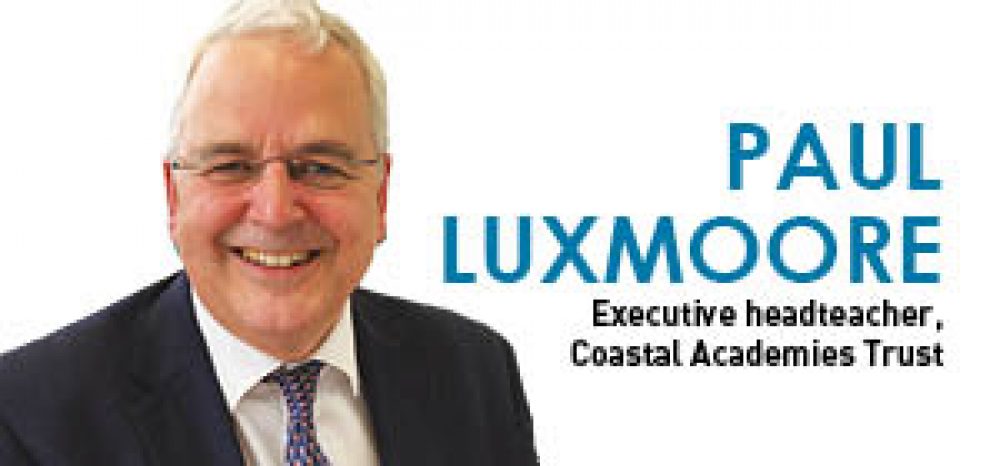Why is the government spending so much on T-levels when a world-class programme that combines academic and vocational study already exists, asks Paul Luxmoore
I don’t really understand T-levels. This is either because I’m a bit dumb and slow, or because, as the executive head of a predominantly secondary MAT, I’ve been led to believe that T-levels are designed for FE colleges, and are therefore not for my pupils.
I get the intention, however. T-levels are supposed to be academically tough vocational courses, because we need to improve the status of vocational study. Academically able students are channelled into A-levels, which limit their choices and their styles of learning, and are designed to provide access to higher education. Those who cannot access A-levels are put onto vocational courses, which are perceived as having a lesser status. Anyone with half a brain recognises that this is a pretty stupid national system.

But will we be able to persuade students who are capable of coping with the academic demands of T-levels to undertake courses that are vocational? And – if T-levels are restricted to FE colleges, will secondaries not promote them because they don’t want to lose the students who would otherwise be capable of taking A-levels?
Furthermore, for T-levels to succeed, the country will need to change its prejudiced view of “work-related” learning. In a nutshell, the middle classes will need to be persuaded to dump their obsession with A-levels.
The four secondaries in my trust in Kent are International Baccalaureate World Schools. One offers both the IB diploma programme (the one that most people have heard about) and the IB careers-related programme (IBCP). The other three just offer the IBCP. In fact, 27 secondary schools in Kent offer the IBCP – the biggest concentration in the world!
Kent isn’t just the garden of England; it contains some of the most deprived coastal areas in the country, including Thanet, where we’re based, as well as some very wealthy commuter areas. But there’s clearly something about the IBCP that they all like.
The IBCP is the only educational programme that already combines vocational with academic learning. It is a clever blend of pre-existing courses: BTECS and the IB. It is brilliant in its simplicity and entirely flexible in its structure.
The middle classes will need to be persuaded to dump their obsession with A-levels
The IBCP requires a student to study any recognised vocational course at whatever level is deemed appropriate. Work experience is not required, but depends on the requirements of the course. Students are required to study at least two academic subjects, but at whatever level is deemed appropriate, higher or standard.
They must also study the IBCP core, which is where it gets particularly interesting.
The core includes developing personal and professional skills, particularly related to work. Students typically keep a journal that enables them to reflect on their own learning and personal development.
It includes service learning, where students must apply their knowledge and skills to meeting a community need. This provides opportunities to work together in teams. It also requires students to complete a reflective project: an in-depth piece of researched work, based on an ethical issue that links their vocational and academic courses.
Finally, students must study a language, usually a foreign language, although it does not have to be examined; internationalism is still fundamental to the IB.
While the IBDP is a more expensive programme, the IBCP is no more expensive than any other post-16 offer.
We have found the IBCP changes our students’ lives, because instead of limiting their options, it is designed to keep their options open, both in terms of destination – work, apprenticeships or university – and how they learn. It is designed to develop skills and, through the IB learner profile, qualities.
Most importantly, it changes the restrictive paradigm we have imposed for generations, because it gives academic validity to vocational study and vocational validity to academic study.
I hope that T-levels are a success, but I worry they may fail. I am consoled, however, because we already offer what they are intended to provide.
Paul Luxmoore is executive headteacher of the Coastal Academies Trust







IBCP would be a valuable contribution to the qualification mix leading to graduation at 18 which is where we should be heading.
Unfortunately, the DfE and successive ministers only appear to value academic qualifications. They may play lip service to vocational exams but still judge schools on how many pupils they send to higher education particularly Oxbridge.
There’s a danger that T levels will go the same way as Labour’s Diploma and GNVQs (aka GENETALS – General Exams Taken By All). English snobbery which rates ‘academic’ (brain work) as superior to ‘vocational’ (working with hands) will likely see to that.